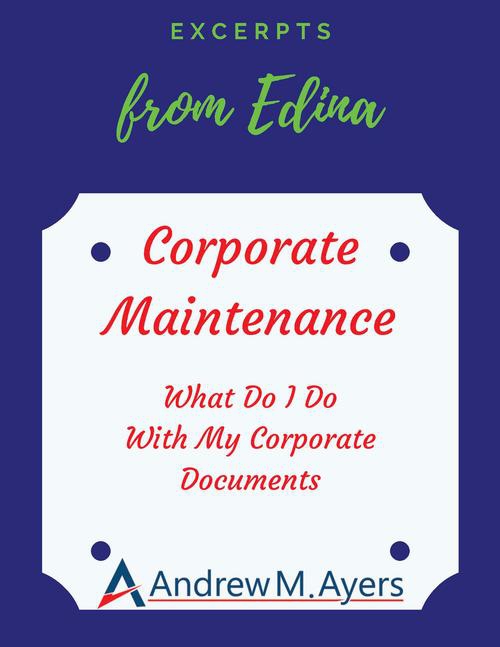 When you're running a business, you may find that dissolving your limited liability company (LLC) is sometimes necessary due to various reasons, such as financial difficulties, changes in business direction, or a change in your personal circumstances. While many business owners are worried that dissolving their company is a permanent action, there are instances when you may wish to revive or reinstate your dissolved LLC.
When you're running a business, you may find that dissolving your limited liability company (LLC) is sometimes necessary due to various reasons, such as financial difficulties, changes in business direction, or a change in your personal circumstances. While many business owners are worried that dissolving their company is a permanent action, there are instances when you may wish to revive or reinstate your dissolved LLC.
For example, you may be simply moving your company to a new state, in which case if that state does not allow you to domesticate your current business, you may need to dissolve it and open a new business in your new state. Or perhaps you created an LLC to own real estate, but you no longer own that property and there is no reason to keep the LLC going. In both these situations, dissolving your LLC is a natural step in the process.
But what happens when you move back to your original state or you decide you want to continue investing in real estate? Are you forced to go through the process of opening a new LLC again? By following the necessary steps and meeting the requirements, you can bring your LLC back to good standing and resume its business operations.
Dissolving an LLC
LLC dissolution is the process of formally ending an LLC's existence as a separate legal entity. It involves fulfilling legal obligations, winding up affairs, and liquidating assets. When an LLC is dissolved, it loses its legal protections, and the owners may become personally liable for the company's debts and liabilities. However, the specific dissolution process may vary depending on the state's LLC Act and the LLC's operating agreement.
Before embarking on the reinstatement process, it is crucial to understand the reasons that led to the LLC's dissolution. This knowledge will help in addressing any underlying issues and ensuring compliance moving forward. Common reasons for dissolution include:
- Failure to file required reports or tax returns;
- Non-compliance with state regulations; or
- Failure to pay fees or taxes.
There can be other reasons that you dissolved your LLC as well, so it's important that you understand why the LLC was dissolved before you attempt to reinstate it.
Reinstating an LLC
The process of reinstating a dissolved LLC typically involves several steps, which may vary based on the state's regulations and the circumstances surrounding the dissolution. Here is a general outline of the reinstatement process:
-
Research State Requirements: Begin by researching the specific requirements and procedures for LLC reinstatement in the state where the LLC was initially formed. Each state has its own regulations and forms, which can typically be found on the Secretary of State's website.
-
File the Appropriate Forms: Complete and file the necessary reinstatement forms provided by the state. These forms typically require information such as the LLC's name, date of dissolution, the reason for dissolution, and any outstanding fees or taxes.
-
Address Compliance Issues: Identify and address any compliance issues that led to the LLC's dissolution. This may involve resolving outstanding fees, and penalties, or filing delinquent reports or tax returns.
-
Pay Reinstatement Fees: Pay any required reinstatement fees or penalties as mandated by the state. These fees are typically associated with the filing of reinstatement forms and vary depending on the jurisdiction.
-
Submit Supporting Documentation: Along with the reinstatement forms, you may need to submit supporting documentation, such as a Certificate of Good Standing or evidence of tax compliance, to demonstrate that all necessary requirements have been met.
-
Await Approval: After submitting the reinstatement application and necessary documents, the state will review the submission. The processing time can vary, but it is important to keep track of the status and follow up if necessary. Especially since 2020, the processing times for many states have significantly increased.
-
Update Business Records: Once the LLC is reinstated, update your business records, including any changes to ownership, registered agent, or address. Additionally, ensure compliance with ongoing reporting and tax obligations to maintain good standing.
Reinstating a dissolved LLC is a process that requires careful attention to detail and adherence to state-specific requirements. By understanding the reasons for dissolution, following the necessary steps, and addressing compliance issues, you can successfully reinstate your LLC and resume its operations.
Do I Need a Business Attorney?
If you or your business needs help with the dissolution or reinstatement process, it's important that you talk to a business attorney. Let's schedule a Legal Strategy Session online or by calling my Edina, Minnesota office at (612) 294-6982 or my New York City office at (646) 847-3560. My office will be happy to find a convenient time for us to have a phone call to review the best options and next steps for you and your business.




